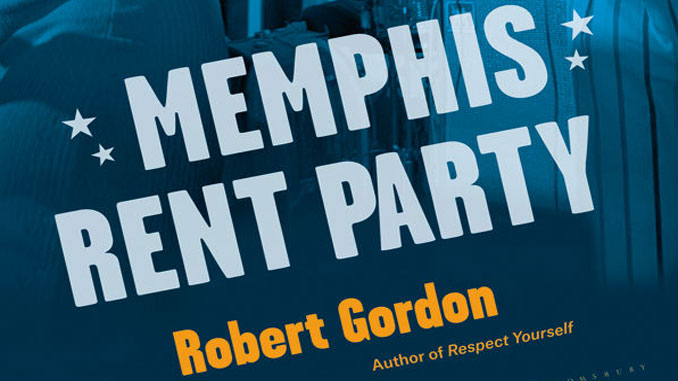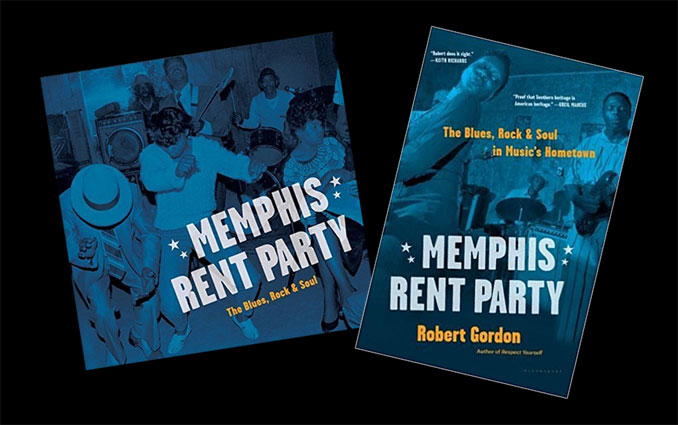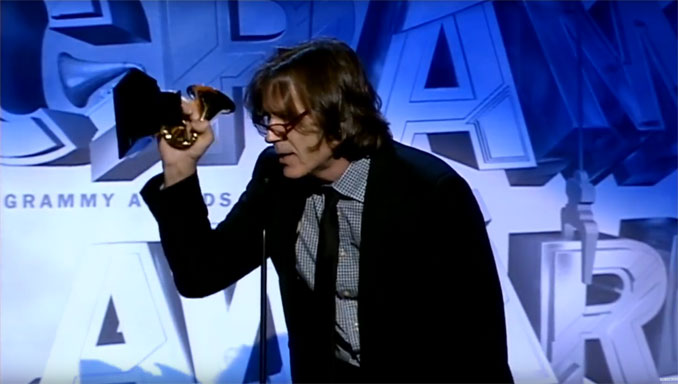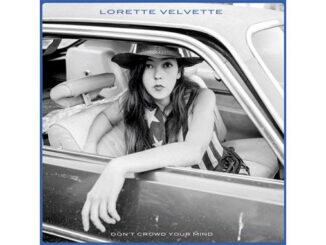
“Rent party” refers to a party held by a tenant in order to raise money to pay the rent by charging the guests for attendance fee. Memphis Rent Party is also the title of the prolific music writer (and film maker) Robert Gordon’s (born 1961) seventh book, sub-titled The Blues, Rock & Soul in Music’s Hometown. It is not hard to draw the conclusion by the help of the title that Robert Gordon publish this book with the tongue in cheek hint to make ends meet financially. Authors are exposed to great insecurity since writing is mostly project-based without work guarantee after completion of current project. No wonder a rent party may be appropriate at times.
The best way to describe this book is to compare it with how less known and previously unreleased material is collected and presented on a musical artist’s compilation album. With this parallel in mind, the texts that constitute the backbone of Memphis Rent Party were written between 1985 and 2014, with the main production in the 1990s. However, these texts are by no means left-overs and there is an interesting auto-biographical preface that really helps the reader to understand the author’s vantage-point. Moreover, the book contains newly written – and rather substantial – pieces that introduce and weave together the different parts and gives each chapter a reflective hindsight back-drop – which apparently took longer time to add than expected (launch interview).
Twenty portraits make up the book. All portrayed are eccentrics in one way or another and all of them have some sort of ties to Memphis. All but two are musicians. The musicians represent the wide range of music styles which reflect the rich and diverse musical life of Memphis; we get glances of fife and drum, blues, jazz, country, folk, pop and rockabilly in one sweet mix. Less known artists mingle between the covers with mega-stars. On one hand there is The Fieldstones and Jerry McGill, and on the other Jerry Lee Lewis and Lead Belly. We also find exciting reading about many semi well-knowns, such as the stories about Alex Chilton and Tav Falco. Furthermore, the spirits of Jim Dickinson and Sam Phillips are hovering over the Memphis music scene forming two inter-linked inspiration centers about twenty years apart.

Robert Gordon is really close to some of the portrayed. Such intimacy is unavoidable since he is a part of the Memphis cultural blood system. But he practices this consequent participant observation with care and without getting introvert; the persons under consideration are neither glorified nor discredited. If someone’s feathers are ruffled, it is done gently and with empathy. An open ended writing adds to the book’s qualities. Although the reader is given facts added with detailed observations, much is said between the lines which leaves a fair amount of conclusions to be drawn by the reader him- or herself. And you do not have to worry about that the author is stuck in the past; Cat Power and Jeff Buckley have their own chapters.
Memphis Rent Party gives the reader a pretty good idea of what type of music is concerned and how its roots have evolved in this Memphis enclave, meeting point and unsupervised chemistry laboratory which allows different music cultures to react – sometimes in a volatile way – with each other and forming new elements that way. Maybe “shambolic” is the best word to describe the Memphis attitude and the disorganization behind its music making. Emphasis on imperfection and spontaneity seem to have a long history. Possibly it also permeated Sam Phillips’ work in the Sun studio. “Lackadaisical” is another expression that comes to mind; a reason for this laid back attitude is that the music is ever present. Clinging to recordings then becomes superfluous, because the music can be recreated anytime – albeit somewhat different. Memphis is in that respect more of a process than a place.
There is a generous section at the end of the book with suggestions for further listening and reading associated with each chapter. Even if you think you are fairly updated with Memphis music, film and literature, there is a lot of useful recommendations for digging deeper. I started to get irritated while I read this section, because I missed a lot of names – until the very last page where Goner Records and some of their artists are listed amongst the others I first thought was overlooked. Reigning Sound is for instance luckily mentioned in the very last sentence with the comment that the author realizes that he may have forgot lots of others. Quite understandable, it is hard to keep track of a music community with such wealth and dynamism as the one in music’s hometown.

But there is more to it. Fat Possum has released an accompanying record produced by Robert Gordon with the same name as the book. It contains several previously unreleased tracks with the portrayed and the album thereby reflects the musical diversity expressed in the book. The music encompasses the time period from 1955 to 2010; from one of Charlie Feathers’ earliest recordings (the Hank Williams influenced Defrost Your Heart) to Luther Dickinson’s (one of Jim Dickinson’s sons) and Sharde Thomas’ Chevrolet (21th century fife and drum). Alex Chilton goes reggae in Johnny Too Bad – from the film The Harder They Come – and Jerry Lee Lewis (as always) makes his very own version of (in this case) Harbor Lights. And there are eight more just as interesting tracks!
Both the book and the record are of course highly recommended.

Other suggested reading about Memphis music
Robert Gordon: It came from Memphis [Pocket Books, 1995]; complements the established stories and enriches in that way the history of Memphis’ music scene.
Tav Falco: Ghosts Behind the Sun – Splendor, Enigma & Death: Mondo Memphis Volume 1 [Creation Books, 2011]; Honestly, I had to re-read the first Cormac McCarthy-ish chapters before I was able to continue, but the effort was worthwhile.
Robert Gordon: Respect Yourself – Stax Records and the Soul Explosion [Bloomsbury, 2013]; the definite story of the rise and fall of the groundbreaking record company.
Peter Guralnick: Sam Phillips – The Man who invented Rock’n’Roll [Little Brown, 2015]; Reviewed elsewhere at PopDiggers.



Be the first to comment